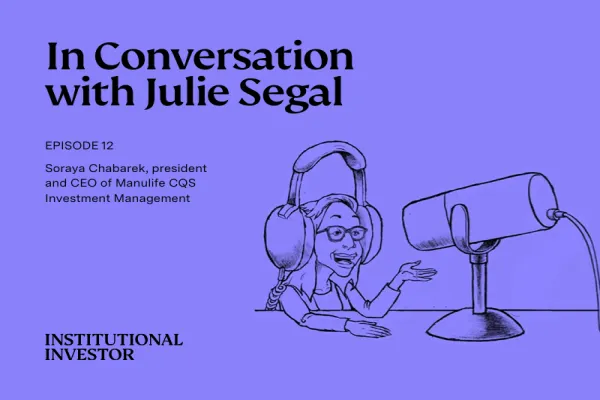Covid-19 is not just about immediate economic shocks. The virus is permanently changing how businesses, consumers, and governments operate — which impacts investors’ portfolios, according to PGIM.
“The economy will experience a 4.5 percent reduction in 2020, with significant bankruptcies and real near-term economic pain. Fiscal and monetary policy will be much of the story for the next year and a half. But we’re thinking about what matters structurally for investors over the long term,” Taimur Hyat, chief operating officer of PGIM, told Institutional Investor in an interview Monday. PGIM is the investment management arm of Prudential Financial.
In a report set for release Tuesday, PGIM argued that four structural changes will reshape global business: reimagined global supply chains, larger and more expensive inventories, upheaval in residential and office real estate, and so-called “weightless” firms.
PGIM predicts an acceleration towards these “weightless” or tech-oriented, capital-light business models that are focused on software, online platforms, or proprietary data. Any concerns over big tech’s dominance by governments and individuals will be muted by the essential roles these firms have taken on during the pandemic. Even if people have adopted some of these applications somewhat “grudgingly,” as PGIM described it, tech has become all the more essential due to telemedicine, video and communication apps to work and learn remotely, and in previously e-commerce-resistant parts of retail such as groceries.
There will also be plenty of losers.
[II Deep Dive: The II Fear Index: How Scared Are Institutional Investors?]
“Unfortunately, this accelerated trajectory also hastens the displacement of traditional incumbents and perhaps even digitally savvy firms that are late off the block. Investors will do well to position their portfolios to avoid this potential trail of destruction as technology-driven superstar firms across many industries further strengthen their dominance,” according to the study. Mainstream and luxury retail businesses that have not moved substantially online may perish, according to PGIM.
“The FAANGs have really established themselves as critical infrastructure for the modern economy like rail and roads before them,” Hyat said, adding that smaller start-ups will have less funding access.
PGIM also raised questions about commercial and residential real estate trends like millennials and baby boomers moving into cities like New York at the expense of suburbs, and companies packing in as many people as they can into high-value skyscrapers.
Still, the investment manager thinks the office will definitely survive.
“Offices are part of how employees and workers innovate. Remote work won’t remove the need for offices where workers come together, given the social animals we are,” said Hyat. “But demand for hoteling and hot desking arrangements will go up, as more employees choose to work remotely for one two days a week,” he said.
The global supply chain and how businesses manage it might change dramatically. According to PGIM, cross-border and domestic trade activity [in China] fell more than 50 percent during one week at the initial peak of the virus. Companies like Apple were hit by the shutdown in manufacturing in China, and then by similar outages in Germany, Italy, South Korea, and Malaysia where the tech company has component suppliers.
Hyat said PGIM’s hypothesis is that some companies will bring production back to their home markets, particularly in industries where automation can be deployed and in industries where governments might require or encourage onshoring, such as pharmaceuticals and medical supplies. Other companies will likely establish geographic diversification for their supply chains by operating in multiple markets.
But it will be costly.
“It will bring lower EPS [earnings per share] growth, but the upside is that companies that build this will be better positioned to weather the downside. Then the question is, will that vary between debt investors who value greater assurance and equity investors?” said Hyat.
Investors will increase the value they place on resiliency, rather than simply looking for the most efficient and lowest cost provider, PGIM predicted. “The extent to which that happens, though, we’ll have to monitor. A company’s resiliency will certainly be a more important part of future due diligence,” said Hyat.







